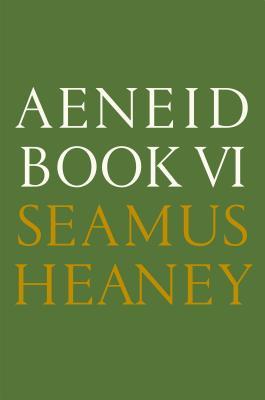Rick's Reviews > Aeneid Book VI
Aeneid Book VI
by

by

Heaney called this late work, a “classics homework,” and makes no bones of the fact that the narrative loses its dynamism two-thirds through as Virgil pays homage to his imperial patrons. Yet, there is the first two-thirds of the book and the charm of Heaney paying a homage of his own to a long ago teacher of Latin.
Book VI find Aeneas arriving in Italy and visiting the Sibyl of Cumae from whom he desires two things: to know of his future and to find passage to the House of the Dead to meet with his father one last time. Before it is a book of song in praise of empire, Book VI is an elegy of great feeling as the Sibyl first tells Aeneas that one of his crew members has died and he must bury his dead companion with proper honors. Then he may look for the golden bough that is the price of admission to the underworld.
After the funeral Virgil does for the reader what he will do for Dante later, takes us on a tour of the House of the Dead, where various spirits and evils loiter at the entrance but also “pain / And self-wounding thoughts,” “diseases, the sorrows of age,” and “agonies of mind.” Inside the House of the Dead there is essentially a series of antechambers where in order of appearance are: infants and children, the unjustly executed, suicides, those in “thrall to an unremitting love,” and those killed in war. It is a more humane limbo, but then the way parts and on one path is heaven (Elysium) and the other leads to hell. Hell is not open to Aeneas’s viewing, he hears the cries and the torment but is not allowed to see so the Sibyl describes who suffers within. Those who “Hated a brother, abused a parent, or ruined / The good name of a client; those who gloated / On wealth they’d secretly amasses and hoarded / And failed to share with kith and kin (they comprised / The biggest crowd).” Betrayers, liars, violators of oaths.
And who makes it to the Elysian Fields, “the Groves of the Fortunate Ones who dwell in Joy”? Great heroes who suffered for their country, poets, artists and creators, those “Remembered for a life spent serving others”. In sum, it is where Seamus Heaney has gone to find Virgil and his Latin teacher, Father Michael McGlinchey.
Book VI find Aeneas arriving in Italy and visiting the Sibyl of Cumae from whom he desires two things: to know of his future and to find passage to the House of the Dead to meet with his father one last time. Before it is a book of song in praise of empire, Book VI is an elegy of great feeling as the Sibyl first tells Aeneas that one of his crew members has died and he must bury his dead companion with proper honors. Then he may look for the golden bough that is the price of admission to the underworld.
After the funeral Virgil does for the reader what he will do for Dante later, takes us on a tour of the House of the Dead, where various spirits and evils loiter at the entrance but also “pain / And self-wounding thoughts,” “diseases, the sorrows of age,” and “agonies of mind.” Inside the House of the Dead there is essentially a series of antechambers where in order of appearance are: infants and children, the unjustly executed, suicides, those in “thrall to an unremitting love,” and those killed in war. It is a more humane limbo, but then the way parts and on one path is heaven (Elysium) and the other leads to hell. Hell is not open to Aeneas’s viewing, he hears the cries and the torment but is not allowed to see so the Sibyl describes who suffers within. Those who “Hated a brother, abused a parent, or ruined / The good name of a client; those who gloated / On wealth they’d secretly amasses and hoarded / And failed to share with kith and kin (they comprised / The biggest crowd).” Betrayers, liars, violators of oaths.
And who makes it to the Elysian Fields, “the Groves of the Fortunate Ones who dwell in Joy”? Great heroes who suffered for their country, poets, artists and creators, those “Remembered for a life spent serving others”. In sum, it is where Seamus Heaney has gone to find Virgil and his Latin teacher, Father Michael McGlinchey.
Sign into Goodreads to see if any of your friends have read
Aeneid Book VI.
Sign In »
Reading Progress
Started Reading
June 9, 2016
–
Finished Reading
October 29, 2016
– Shelved
October 29, 2016
– Shelved as:
poetry


